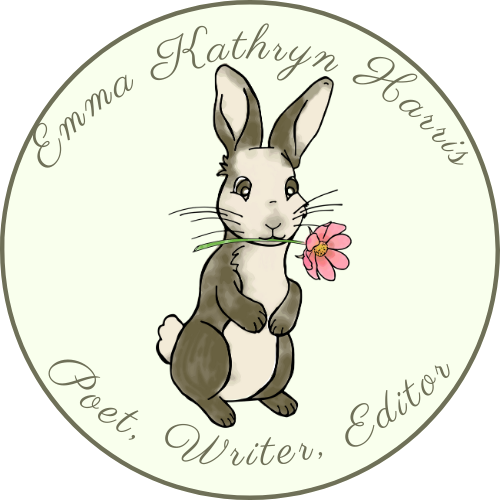Social media, conferences, workshops — Will they improve my writing?
If you want to be a writer, you must do two things above all others: read a lot and write a lot. There’s no way around these two things that I’m aware of, no shortcut.”
Stephen King, On Writing
Recently I read an article that discussed how we, as writers, fall into the trap of expert advice; we want to study as much as we can the craft of writing; we attend conferences and workshops; and pay money to grow in our knowledge. We are intent on learning all we can before we are even ready to pick up our pen to write.
We listen to all the people in the business who claim to have all the answers “we’ll ever need” if we simply pay them a fee to take their online course and suddenly we’ll have the same enlightenment they did.
Take it from someone who has done all that and wasted money, time and energy — it isn’t worth it.
That’s not to say you should never read a book written by a famous author who teaches how to write and edit better. Or that you should not attend conferences or workshops that appeal to you. But what you want to realize is that you won’t learn how you should write and what you should write from any of them. What worked for one person worked for that person. It likely won’t work for you because you are not that person.
We learn to find our “voice” by simply writing — a lot. We learn what we enjoy writing about, what appeals to us, by writing — a lot. The more we write, the more we learn because we are doing, not studying.
Where do we need to be cautious when choosing our writing path? Is social media the answer to creating our author brand? How do we know when we should attend writing conferences and sign up for workshops? And how can we find our author’s “voice”?

Social media dangers on our emotional writing health
I want to touch on this right away because this is an area we hear often that we need to be present. Whether it is Facebook or TikTok or Instagram or other social media outlets, it is a way to get the word out, globally, that we exist. If we desire to build our author brand, it must reach beyond friends and family.
If you enjoy social media and posting your muses, photos, and other writing related material and it works for you, that’s fine.
Keep in mind, however, it is also a tool that saps the time we should be using to write, not to mention crush our fragile emotional and mental spirits. The majority of people use social media to brag about their big wins, their awards, and the tons of money they make writing. They also target our vulnerable emotions with promises to share their “secrets” so we can be just like them and experience their success. If we’re starting out as writers, these sales pitches make us feel as though we are missing out on something and we are not good enough if we don’t cave in to their program. It’s an effective trap. No wonder they make $10,000 a month, because they prey on our weakness.
Comparing what others are doing (if they are even true!) to what accomplishments we have yet to realize, can squelch our joy and enthusiasm, and make us question what the heck we are doing anyway. We begin to feel jealous and defeated.
Social media is not a place to be if you are suffering from depression. It is a place for “likes” from people we do not know in real life and who are not really our “friends” unless we give them something which benefits them.
If you find yourself becoming depressed as you read through the so-called successes, unplug from the medium for a few weeks and see how you feel. Social media isn’t for everyone, nor is it the absolute answer for our success. It is only a small part of our marketing strategy. And even that can change because we do not own our social media accounts. The algorithm can change overnight, and we’ve lost all our followers.
Some Facebook groups we are a part of can be useful and encouraging. However, if you find that you are not encouraged, the group becomes toxic or full of advertising posts, or you simply outgrow it, walk away and find something else.
Figure out your goals, outline your marketing plan, and see if social media fits into that and is worth your time and energy.

Conferences, workshops, webinars — attend or not to attend?
There are any number of conferences, workshops, classes, and webinars targeted at writers. The key is to understand (1) your own writing goals, (2) your budget, and (3) how these fit into meeting your goals.
First, know your writing goals. Are you getting started and desire to learn more about the craft itself? Are you interested in understanding the publishing industry? Are you trying to build a network of writers to collaborate with and maybe even do a video chat once a month?
Your goals will differ from another writer’s, so don’t compare. Do not feel pressured to attend something you’re not sure about.
Next, know your budget. Conferences and workshops can run you into the hundreds of dollars or more. What can you afford? Are you planning to sign up for or attend more than one? If you are not careful, you can begin to sign up for several events, not benefit from them, and even worse, realize after the fact they cost more than your budget allowed.
Finally, be selective and diligent. Do your research to see what works for your writing goals. Write down what appeals to you and why, the benefits you will receive, and the cost. Then review your list and choose the most important ones for you.
You could ask others for their opinions and suggestions on what to attend but remember — their opinions and goals differ from yours. Do your own homework.
“It’s better to be in the arena, getting stomped by the bull, than to be up in the stands or out in the parking lot.”
Steven Pressfield, The War of Art

How to find and know your own author voice
We find our author’s voice by writing — a lot. (I think I mentioned this).
I’ve been writing for 40 years (and yet I only look 28). The way I write today is different than how I wrote as a child, as a teenager, as a reporter, as a copywriter, or 10 years ago. The more we write, the more our style changes. We begin to understand our craft more as we write a variety of stories and material, as we edit to clean up our prose, and as we receive feedback from respected beta readers.
What can be tricky and self-defeating is when we listen to others’ opinions about our own voice. Writing is truly subjective with few actual rules, aside from grammar, to follow. Readers either like our voice or not. They either relate, or they don’t. But that doesn’t mean your voice is wrong.
I had to learn the hard way that while it is good to listen to the various suggestions, I should not have accepted each one as an unwritten law. That is what made me push aside my poetry for years because each person had a different opinion about whether I should “write like that,” or if something was “supposed to rhyme,” or that it “isn’t supposed to rhyme,” or how no one shares my beliefs in whether or not something is or isn’t.
“It took me quite a long time to develop a voice, and now that I have it, I am not going to be silent.”
Madeleine K. Albright, author
Writing is subjective.
Stick to what you like, what you are comfortable with writing, what you feel your voice should be. Be true, genuine and honest with yourself. Don’t write how you think you should write or how others tell you to write or how other authors write. As you continue to compose and draft and edit, your voice will come to you.

Final thoughts
This article’s intent is merely to inspire you to think about your personal and professional writing goals and how you want to reach them. There is no right or wrong answer to whether or not you should be on social media or attend conferences or read books on the craft of writing.
These days, everyone has “the answer” to all our writing needs. But their answer might not work for us and frankly, it usually never does. That’s why we have to take the reins on what we want to achieve and then just do it.
Writing is a lot of work and is probably the most misunderstood, underappreciated, thankless occupation. Why do we still do it? Because we love what we do and we’re good at it.
Keep at it. You are not alone.



